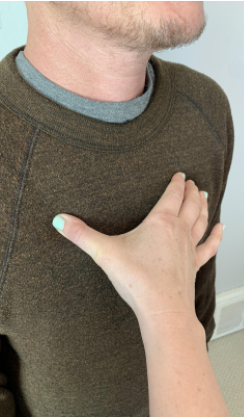Try These 2 Natural Ways to Control Anxiety
How Anxiety Affects Your Life
All of us are capable of living the life that we have always wanted. We have our own strengths and superpowers and it is up to us to discover and use them in order to be the best version of ourselves.
However, some of us are prevented because of anxiety. Anxiety can be uncomfortable and can sneak into anyone's life in a variety of forms. When it is only once in a while, we can handle it. But sometimes, it becomes too much, resulting in feelings of discomfort, uneasiness, or stress.
Even if being anxious is a natural feeling or state, it can impact your life greatly if it worsens. When you feel anxiety over something, it becomes difficult for you to relax, you become stressed out, and you feel as if you cannot do or achieve whatever it is that you desire.
So, if your anxiety has been affecting your life, you have to know how to control it so that you can live a happy and meaningful life.
Signs That You Have Anxiety
So, what does anxiety do to your body? When you feel anxious, your body can experience a lot of unusual and uncomfortable things such as sweating, rapid heart beat, racing mind, difficulty in breathing, shaking or trembling, nausea, cold hands or feet, insomnia, vomiting, loose bowel movement, muscle pain, and more.
It really depends on the individual which signs of anxiety they may experience. Some may experience these symptoms much worse, while some may experience them mildly.
Good news is you can actually resolve this by learning how to control your anxiety. Olympic athletes have been using this form of training for years to help them control their anxiety through a variety of undesirable situations occurring when competing. This training is something you too can simply incorporate into your own life.
How To Control Your Anxiety Naturally
The first thought when it comes to dealing with anxiety is to take medications. However, it is possible to control your anxiety naturally, meaning without the help of any medicine.
Just like how you can hold your breath, you can also use other ways to change your physiology in order to reduce your anxiety and to reach your optimal performance. Various tools can help you in monitoring your muscle tension, brain waves, carbon dioxide exhalation, sweat response, and breathing.
For now, let's discuss the easiest way to help control your anxiety which is to change your breathing.
Change The Way You Breathe
If you are feeling anxious and you are beginning to sweat, shake, and experience other physiological effects of anxiety, an easy way to control it is to change the way you breathe. Know that you can also apply this method even if you are not anxious. The more you practice, the more natural it will become.
So, how will you change your breathing? Instead of breathing in your chest, breathe in your belly. These are the easy steps in doing that:
1) Place your thumb on a pectoralis muscle found on your chest and place your pointer finger on the other.
2) Push your belly out and try to look like you are pregnant. Don't breathe at this time.
3) Exhale and push all the air out of your body. Did you notice there was air to exhale even though you did not breathe in? Inhaling is the least amount of work, it is almost effortless. By pushing your belly out, air is actually being passively brought in. Inhaling is much more passive than we are used to. Do this with only your belly and lower two ribs expanding while your chest remains soft and feeling empty. Then your exhale is where all the work happens. You want to make sure you get all the air out as much as you can. For breathing, you only need three muscles: diaphragm, pelvic floor, and abdominal muscles. When our chest is tight, our anxiety levels are naturally higher.
4) Inhale through your belly and expand it again. Then exhale all the air out again.
5) While doing this, you have to make sure that you are not breathing in your chest. You can do this by ensuring your upper chest is relaxed and soft by monitoring it through your thumb and pointer finger. So, it is important to maintain a soft chest while the belly is doing all the work.
Biofeedback As A Way To Monitor Your Own Body And Physiology
Biofeedback is a body and mind strategy that can help you monitor and control the involuntary physiological effects that you are experiencing such as increased heart rate, muscle tension, and inability to calm your mind. By doing these methods we mentioned, you can naturally take control of your anxiety.
There are different types of biofeedback. These are breathing (as discussed above), brain waves, muscle contraction, heart rate, temperature, and sweat gland activity. Different sensors are used in biofeedback to monitor your body's performance.
Biofeedback devices such as mobile devices, interactive computer programs, computer prompts and graphics, headband, and wearable devices are used to help in biofeedback training in order to monitor your body and to help in restoring your calm.
Biofeedback can quickly help by monitoring your own physiology real time and by allowing you to figure out and make the adjustments you need to make in order to meet your goals.
In your biofeedback session with a certified provider like us, you would have your abdomen monitored with your heart rate, learning how to sync them together for much faster efficiency. Another step can be added to help your anxiety using neurofeedback based on your own brain's neuronal firing patterns! But, that is another blog.



